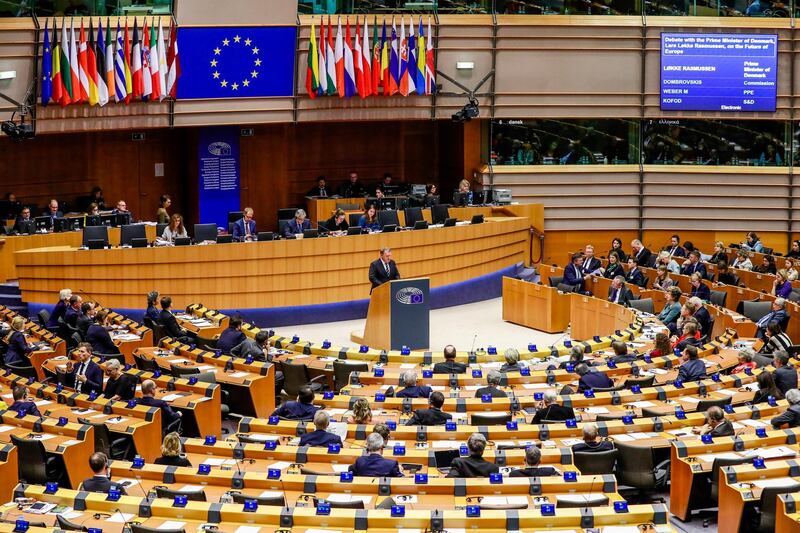The European Union unveiled on Wednesday a long-term vision on combating climate change that aims to transform the bloc into the first carbon neutral major economy by 2050.
Under the plan, remaining emissions of greenhouse gases must be offset. The EU’s strategy comes a week before the leaders of almost 200 countries meet in Poland for an annual United Nation’s conference on climate change. US President Donald Trump this week dismissed his own government’s warnings on the costs of global warming.
“One thing is certain: the status quo is not an option anymore,” Climate Action and Energy Miguel Arias Cañete said as he presented the roadmap that details the European Union’s emission target.
“We cannot afford the price of inaction,” he said.
The EU accounts for 10 per cent of global greenhouse gas emissions, over 75 per cent of which are caused by fossil fuels.
Mr Cañete said the EU aims to reduce its greenhouse emissions by 80 per cent of its 1990 levels by year 2050 by investing in technological solutions to curb climate change and aligning action in key areas such as industrial policy, finance, or research.
Remaining emissions will have to be counteracted by planting trees and pumping carbon dioxide underground to form carbonate minerals. New research into carbon capture and storage (CCS) suggests such technologies – which transform the gases into carbonate minerals – will be essential in keeping temperature increase below the 1.5C threshold recommended by the IPCC Special Report earlier this year.
The European Union, which increased renewable energies from 9 per cent in 2005 to 17 per cent today, is now aiming to bring this share to 32 per cent of the EU’s final energy consumption by 2030. This, Mr Cañete said, is not only possible but economically convenient.
______________________
Read more:
Why climate change should be a conservative cause
London bridges blocked by environment protest
Abu Dhabi to study climate change threat facing sea creatures
______________________
Europe currently depends on imports to satisfy 55 per cent of its energy needs. Bringing down imports to 20 per cent by 2050 would save €266 billion and positively impact EU's geopolitical position. The cumulative savings could reach €2-3 trillion over the period 2031-2050, which could be reinvested in further investments into the modernisation of the EU economy.
The commissioner said this shift must keep social fairness into account so as not “leave anyone behind”. The French protest movement known as “gilets jaunes” skirmished with police in the French capital in response to a tax on fuel adopted as a measure to protect the environment.
“Taxes are not the only [option],” Mr Cañete said when prompted to comment on the road-map’s implementation. Economic incentives and the creation of jobs in the renewable energy section will be a boon to the economy, he added.
The EU believes the target can be met with existing technologies such as solar and wind energy, which would have to be ramped up. Energy efficiency measures such as home insulation would also need to be boosted.
Each of the 27 member states will now have to prepare an action plan detailing their own path towards the set goal. The European Commission will then evaluate each plan and conduct periodic assessments to ensure its implementation.
Whether the EU bloc will truly reach 2050 free greenhouse of emissions has yet to be seen. The document the EU will present next week in Poland sets out eight scenarios for member states to cut warming gases – only two of which see Europe become climate neutral.
Mr Cañete, however, expressed confidence in the system of checks and balances put in place to guarantee that the goal is met. “I am proud to be European,” he said. “If we succeed, others will follow.”






